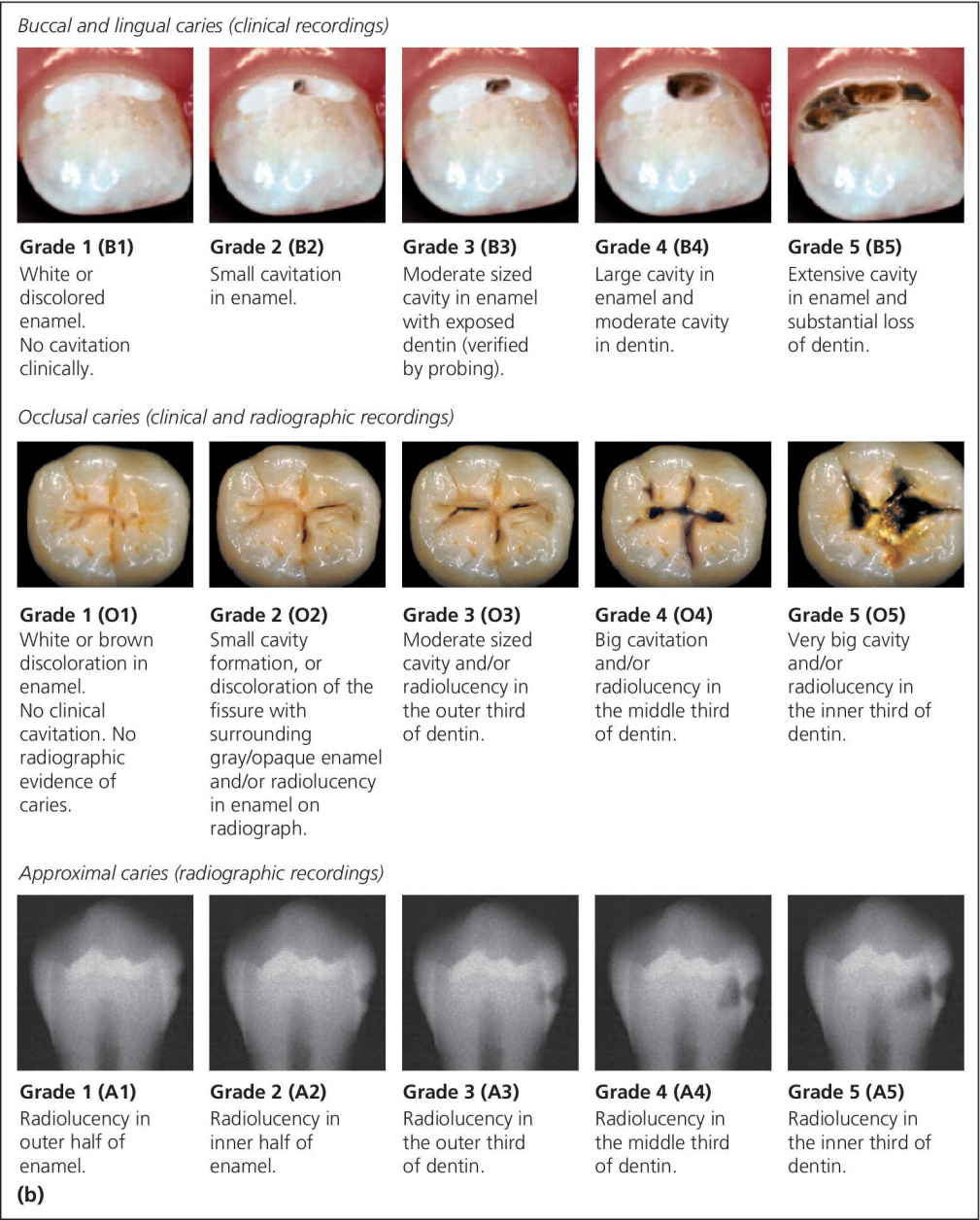
12 Diagnosis and Management of Dental Caries Pocket Dentistry
Tooth number 1 is the tooth farthest back on the right side of your mouth in the upper (maxillary) jaw. Numbering continues along your upper teeth toward the front, and across to the tooth farthest back on the top left side (number 16). The numbers continue by dropping down to the lower (mandibular) jaw.

The Different Types of Teeth Mortenson Family Dental
Labial Surface Diagram of the Tooth Numbering System (viewed as if looking into the mouth) Buccal (Facial) Surface Occlusal Surface Incisal Surface Right Left Maxillary Arch (Upper Jaw) Mandibular Arch (Lower Jaw) Adult Dentition = Permanent teeth 1-32 Child Dentition =Primary teeth A-T Wisdom Teeth =1, 16, 17, and 32
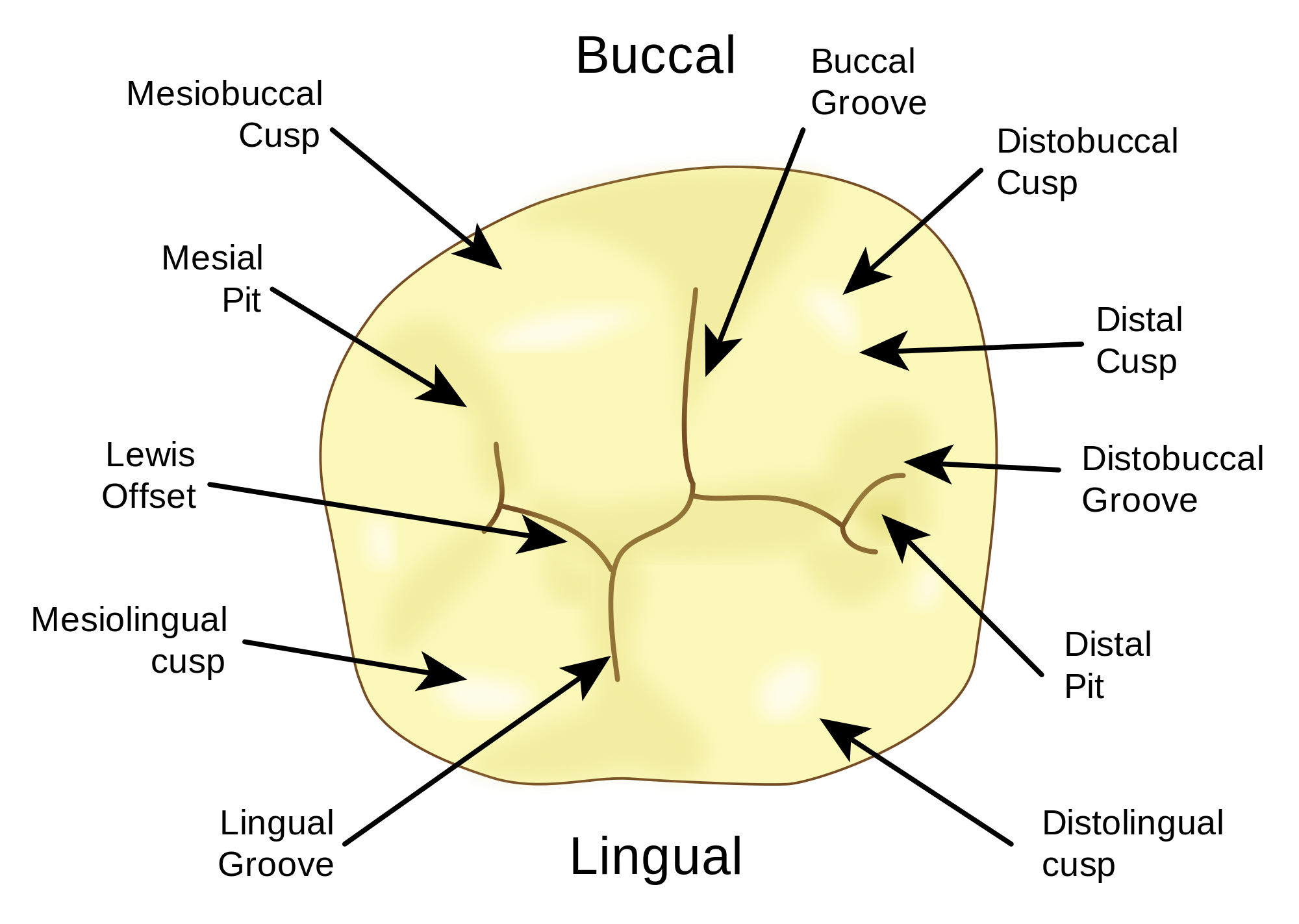
Your Tooth Surfaces Explained Dental Clinique
Place a pea-sized dab of fluoride toothpaste on the head of the toothbrush. (Use a soft toothbrush.) Place the toothbrush against the teeth at a 45-degree angle up to the gum line. Move the brush.

Tooth Number Chart to Identify Primary Teeth Eruption Charts
Introduction. Toothache, and other dental problems, are common presenting complaints in both primary and secondary care. 1 Having a basic understanding of the dentition (or teeth) is important for all healthcare professionals. This article will discuss adult and child dentition, different tooth types, basic tooth cross-sectional and surface anatomy, and the various methods of dental notation.

Mesial Tooth Overview Dentist Ahmed Official Website
Dental charting is a process in which your dental healthcare professional lists and describes the health of your teeth and gums. Periodontal charting, which is a part of your dental chart,.

Introduction to Dental Anatomy (Dental Anatomy, Physiology and Occlusion) Part 2
To begin with, there are five surfaces in each tooth. The surfaces depend on whether the tooth is positioned in the front or in the back. These surfaces include: A tooth has 2 proximal surfaces. One is oriented towards the middle of the dental arch and the other is oriented facing away from the middle of the dental arch.
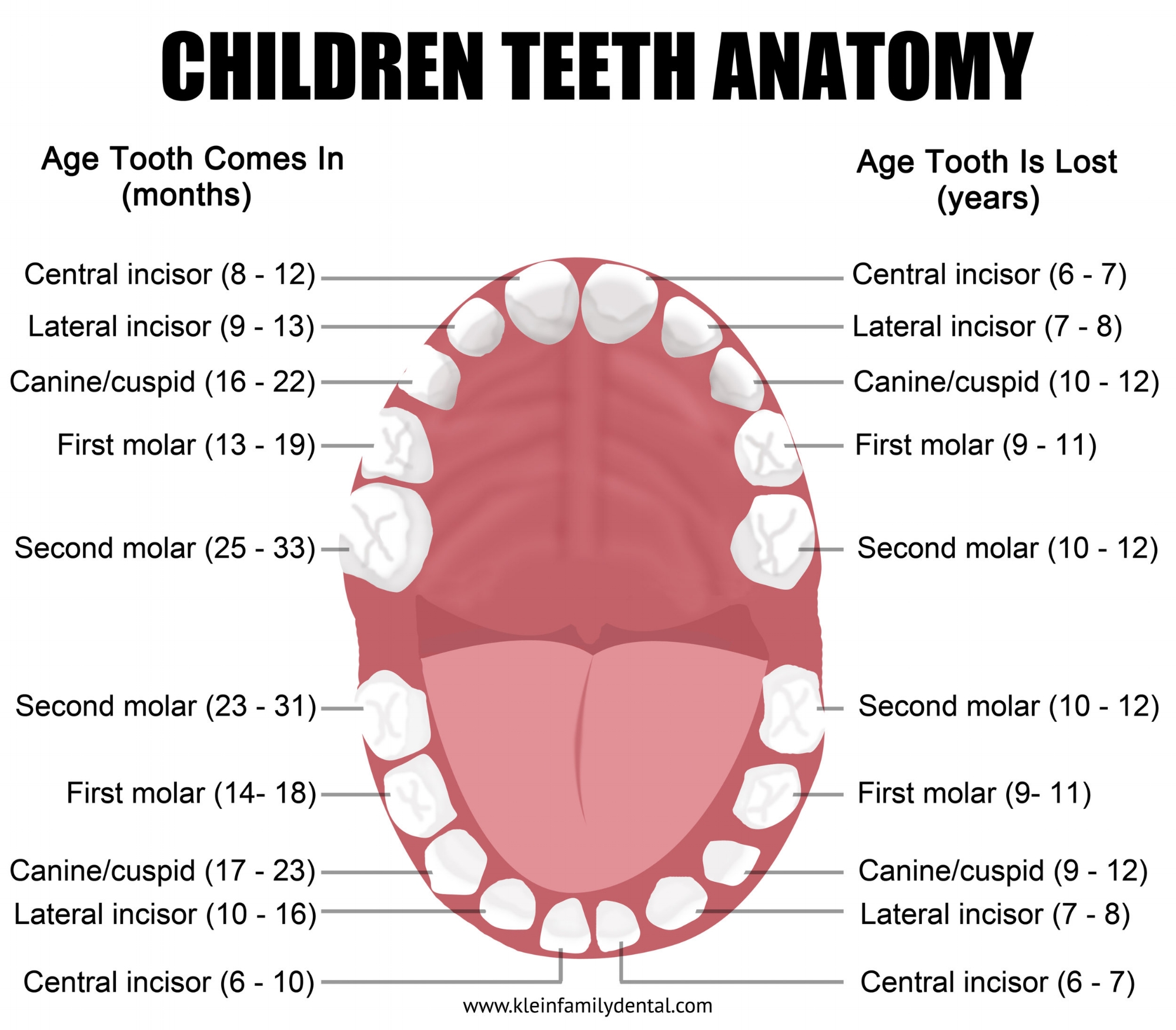
Pediatric Tooth Chart — Klein Family Dental
Teeth names and numbering There are thirty-two teeth in total in the oral cavity of an adult dentition. One half, or sixteen, are embedded in the maxilla, while the lower half are situated within the mandible.The name of teeth on each arcade is self-explanatory - the top sixteen are named 'maxillary teeth', while the bottom half are named 'mandibular teeth'.

Printable Tooth Surface Chart Customize and Print
Teeth Charts For Humans and Animals book an appointment today As the most awarded Bradford dentist we are proud to offer you the resources about dentistry, teeth and oral health. As a leading Bradford dental clinic, we offer a full range of dental services including: dental implants, dental veneers, dental crowns, root canals, braces and much more.

Tooth numbers and illustrations Pi Dental Center
Dental anatomy is a field of anatomy dedicated to the study of human tooth structures. The development, appearance, and classification of teeth fall within its purview. (The function of teeth as they contact one another falls elsewhere, under dental occlusion.)Tooth formation begins before birth, and the teeth's eventual morphology is dictated during this time.

Very colorful, userfriendly poster covering the Anatomy of the Teeth this large central image
Adult teeth are called permanent or secondary teeth: 8 incisors. 4 canines, also called cuspids. 8 premolars, also called bicuspids. 12 molars, including 4 wisdom teeth. Children have just 20.

Tooth surfaces Dental, Dental fun, Dental assistant study
Teeth numbers 1 - 16 are on the upper jaw, also known as the maxillary arch. Teeth number 17 up to teeth number 32 are in the lower jaw, also known as the mandibular arch. Check this printable teeth universal numbering system below. Figure 1. Teeth numbers and names diagram. The human teeth is composed of 16 upper teeth and 16 lower teeth.
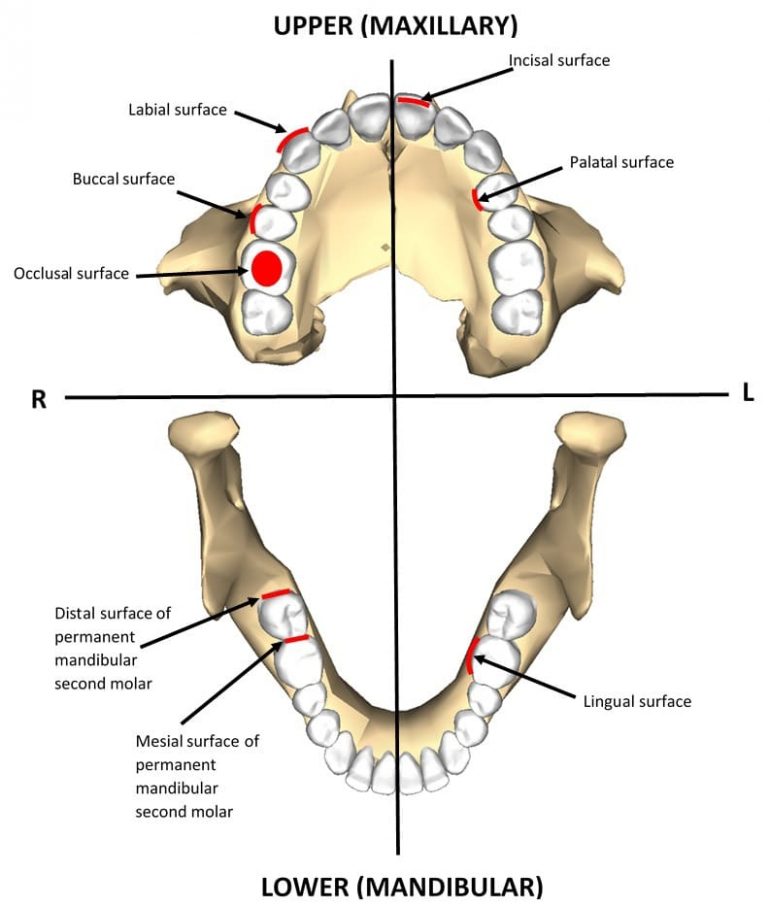
Teeth Types of Teeth, Tooth Anatomy Clinical Relevance Geeky Medics
A photo tutorial on surfaces of teeth and directions in the mouth.
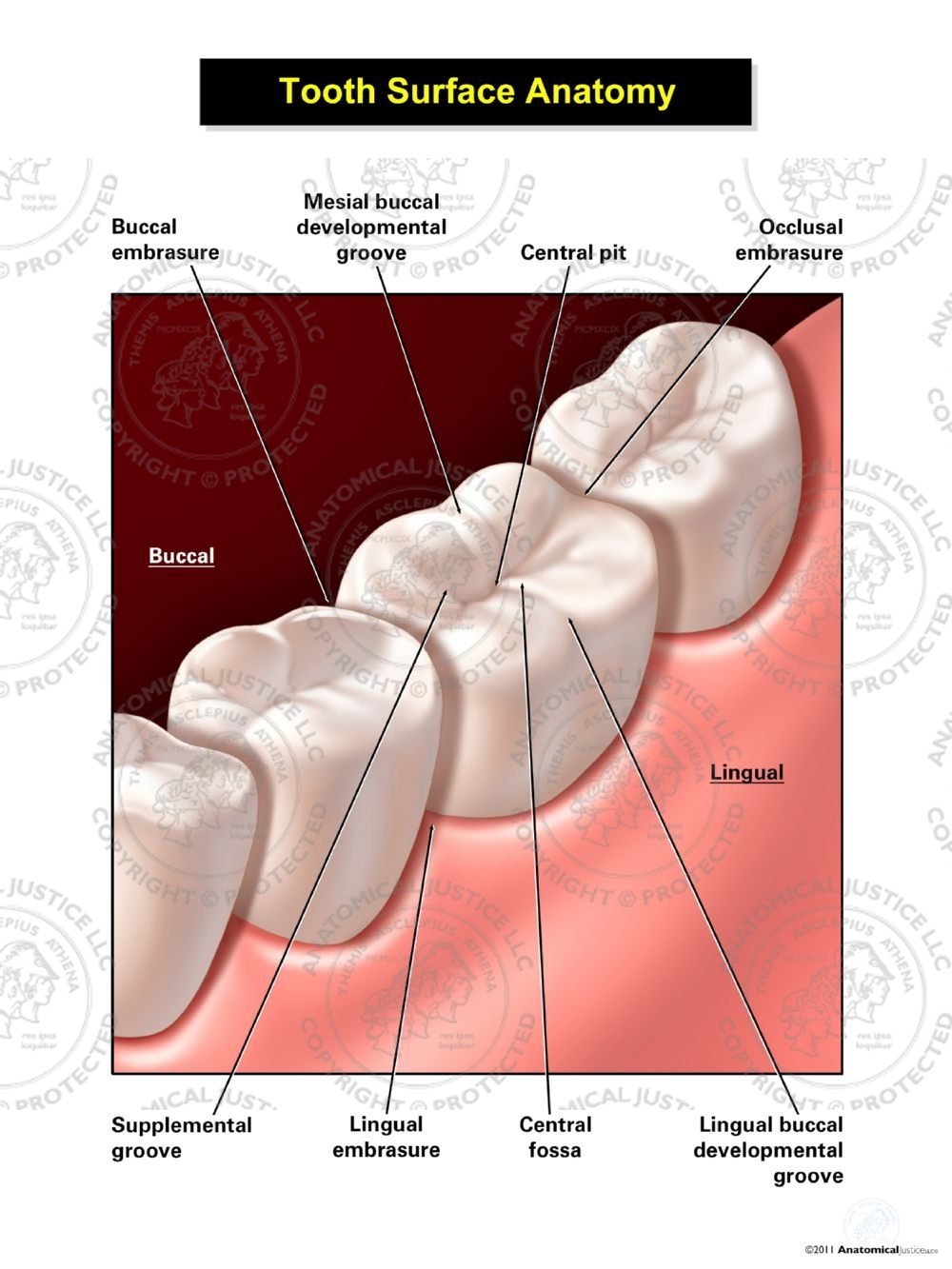
Tooth Surface Anatomy
The five surfaces are labial, palatal, mesial, distal and incisal surfaces. For example, in posterior teeth, mandibular molar, the five surfaces are buccal, occlusal, lingual, mesial, and distal surfaces. The names are given to these surfaces according to their position and use. Following is a brief description of this topic.
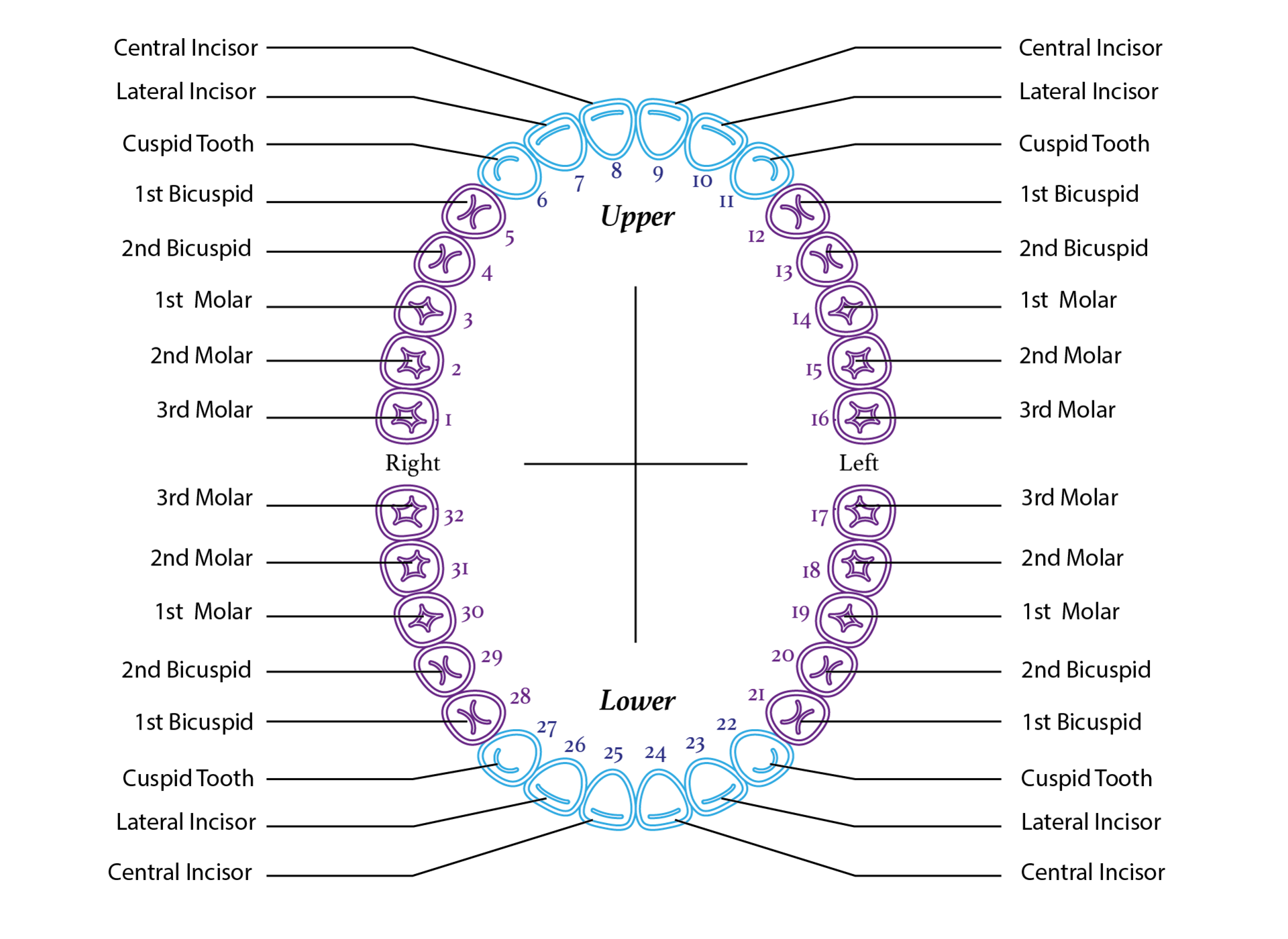
Free Printable Tooth Chart Printable Templates
1. Tooth Identification 1.1. Primary Dentition Below is an example view of the primary dentition graphic tooth chart from Open Dental. Upper primary teeth are identified with letters A-J. Lower Primary teeth are identified with letters K-T.

Here is a tooth chart (or a tooth map) that shows the lettering and numbering system that is
CE500 / Surfaces of the Teeth An Overview of Dental Anatomy Course Number: 500 PDF Take the Test Course Contents Glossary Bone Structure of the Face Facial Landmarks Landmarks in the Oral Cavity Teeth in the Oral Cavity Types of Teeth, Structures, Location a. Divisions and Components of the Teeth Types of Teeth and their Functions
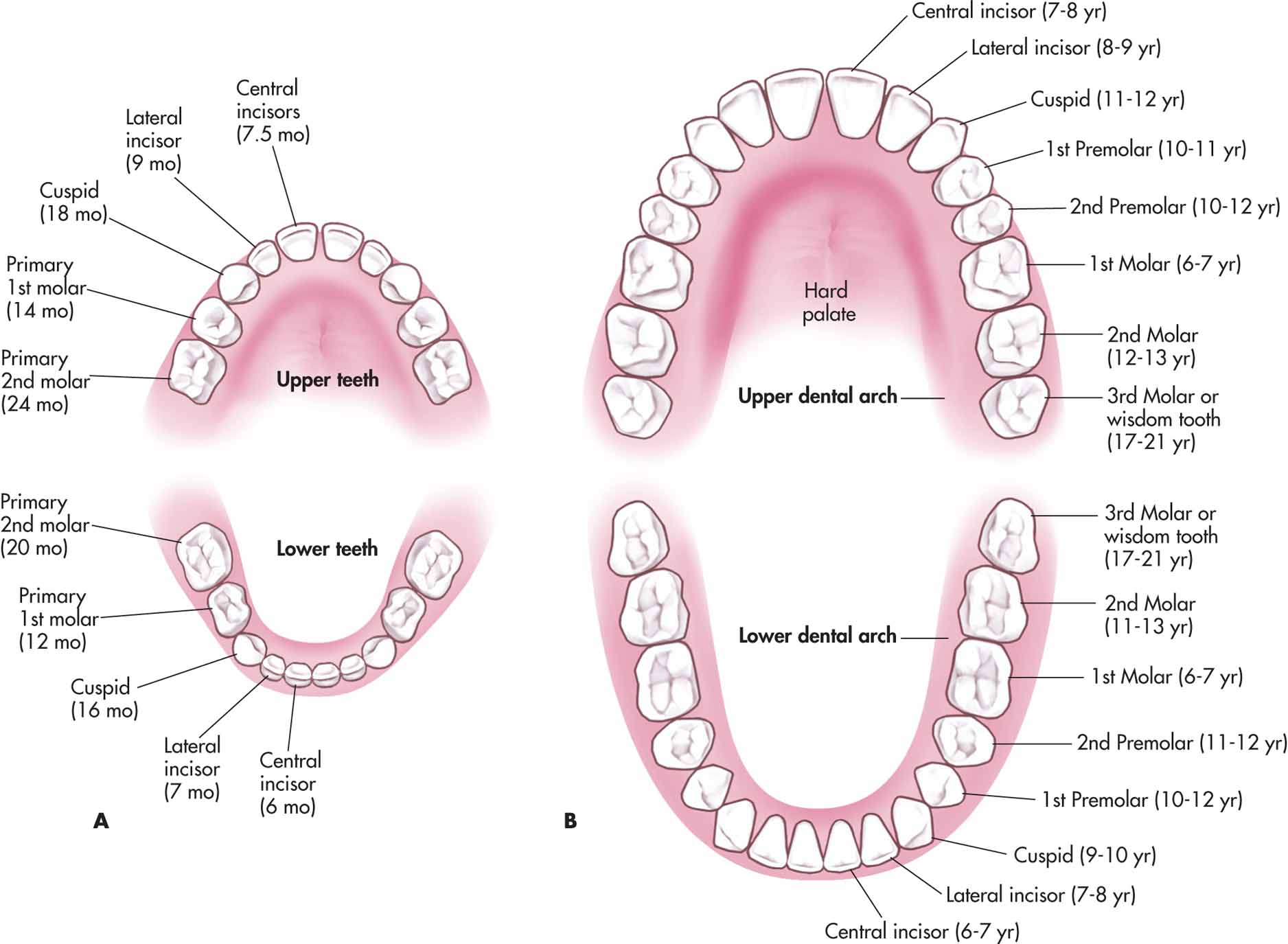
Deciduous And Permanent Teeth and Structure of a Tooth Earth's Lab
Structure and function Root The root is the part of the tooth that extends into the bone and holds the tooth in place. It makes up approximately two-thirds of the tooth. It's made up of.